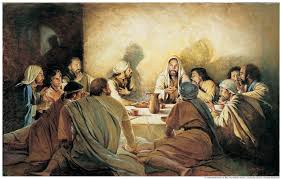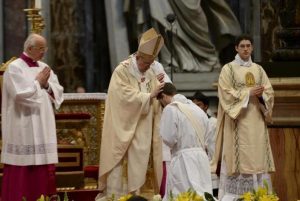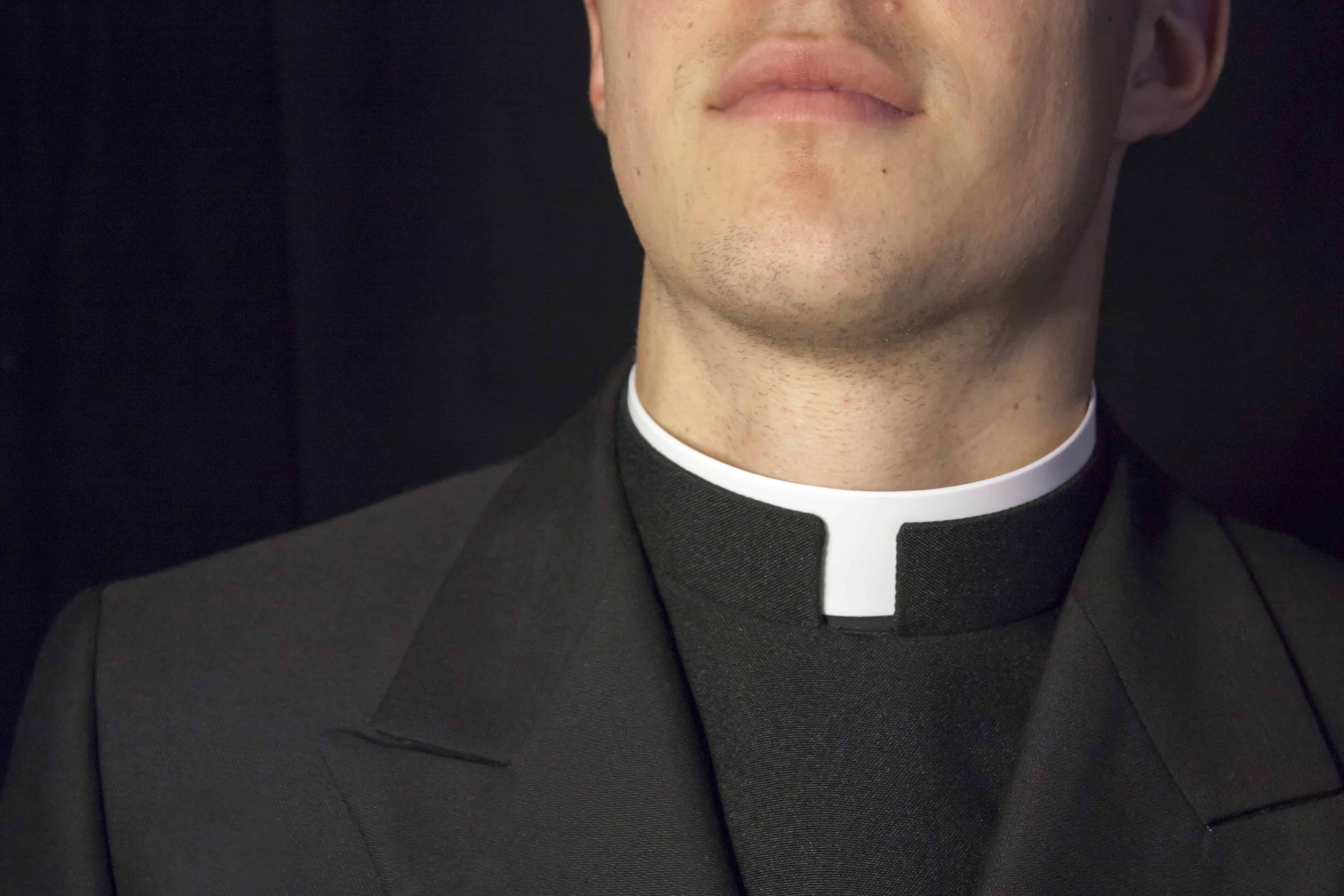“Holy Orders is the sacrament through which the mission entrusted by Christ to his apostles continues to be exercised in the Church until the end of time: thus it is the sacrament of apostolic ministry. It includes three degrees: episcopate, presbyterate, and diaconate.”
“The redemptive sacrifice of Christ is unique, accomplished once for all; yet it is made present in the Eucharistic sacrifice of the Church. The same is true of the one priesthood of Christ; it is made present through the ministerial priesthood without diminishing the uniqueness of Christ’s priesthood: ‘Only Christ is the true priest, the others being only his ministers.’ ”
CCC 1536, 1545

Jesus proclaimed Himself “the bread of life, come down from heaven,” and further said that “whoever eats this bread will live forever.” At the Last Supper, he revealed the literal meaning behind those words with the institution of the Eucharist. And, at the same time, he created the ministerial priesthood of the New Testament, when he instructed those present – the Apostles – to “Do this in memory of me.”
Jesus came for the salvation of all people who would ever live, down to the end of the time. His gift of the Eucharist, the bread of life, was intended to be for all people as well. life was meant to be for all people as well. So, the Apostles passed their priestly power on to other men, in the ceremony which we now call the sacrament of Holy Orders.

Unlike the other sacraments, Holy Orders is conferred in stages or orders, to deacons, to priests, and to bishops, successively. It leaves an indelible mark on the soul of the one who is ordained, enabling him to perform ministerial duties in service to the entire community. The priest or bishop or deacon possesses no inherent power, but functions in the person of Christ, as He intended when he founded the sacrament.
Each of the Orders is empowered by Christ to serve His faithful in different ways:
- Deacons are able to baptize and to proclaim and preach the Gospel during the Mass
- In addition to those functions, priests are given the power to forgive sins and to change bread and wine into the Body and Blood of Christ during the Mass
- Bishops, possessing the fullness of Holy Orders, are able to also confirm the faithful and to ordain other men into the Holy Orders.
Above all else, it is important to view the priesthood in light of the Last Supper, when Jesus washed the feet of His Apostles to demonstrate that his ministry is one of service.
